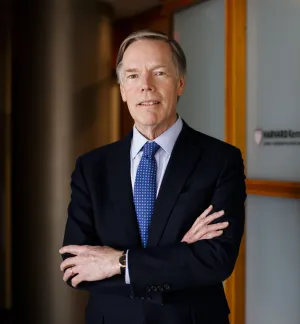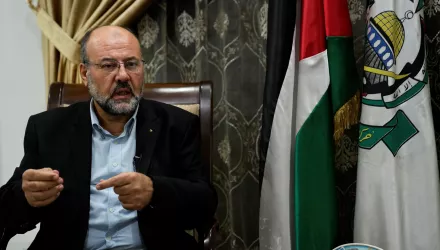Of the critical global challenges faced by the Obama administration in its final year, Syria may be the most confounding.
The brutal Syrian civil war has reached a crisis point, with more than 250,000 dead and 12 million Syrians homeless. The cancer of this war has metastasized into neighboring countries and the heart of Europe. It could destabilize the Middle East for a generation.
We believe that President Obama can no longer avoid providing stronger American leadership to reverse this tidal wave of suffering and violence in the Levant. U.S. strategic interests and our humanitarian responsibilities as the world’s strongest country dictate a change of strategy, as well as of heart, in Washington.
Where the administration has done well, led by Secretary of State John F. Kerry, is to launch new negotiations for elections, a transitional government and a cease-fire. Those talks will be difficult to sustain, however, and diplomacy alone is unlikely to be effective.
Where the United States has fallen short is in framing a clear, consistent and forceful strategy for it to play its traditional leadership role in the Middle East. As a result, it is in an uncharacteristically weak negotiating position. The stronger party is the Russia-Iran-Hezbollah axis supporting Bashar al-Assad’s brutal regime through indiscriminate bombing and starvation in besieged cities. As former career diplomats, we believe diplomacy is most often effective when it is backed by clarity of purpose and military strength. Those have been noticeably absent in U.S. policy toward Syria.
For that reason, the administration should take steps to reinforce U.S. strength in the difficult negotiations ahead in Geneva. It should dramatically expand funding for the moderate Sunni and Kurdish forces that pose an alternative to Assad’s government and the Islamic State, while asserting active, daily leadership of a strengthened coalition including Turkey, our European allies and the Sunni Arab states.
As the talks proceed, Obama and Kerry must also consider stronger measures to protect millions of civilians at risk, including establishing humanitarian corridors to reach those subjected to air assaults by the government and attacks by terrorist groups on the ground. Most important, we believe the Obama team will have to reconsider what it has rejected in the past: the creation of a safe zone in northern Syria to protect civilians, along with a no-fly zone to enforce it.
While the U.S. military has the experience to decide how to create such a zone, one option could be to locate it over 25 to 30 miles south of the Turkish border, with links to areas held by Syrian Kurdish rebels. Its central purpose would be to help local forces drive out the Islamic State and to provide a haven for civilians until the war can be brought to a close.
The White House could press Russia, as a permanent member of the U.N. Security Council, to help organize and protect the zone. The zone would be far more durable and credible with Russian support, and if Russia rejected the proposal — as it probably would — the administration and its partners would be in a much stronger position to take the initiative themselves.
The benefits of a safe zone are manifold. It would be the most effective way to support Syrian civilians and to diminish the flow of refugees to neighboring countries and Europe. It would strengthen our ability to work closely with our key regional NATO ally, Turkey, which has long advocated this step. For the first time, it would restrict the operations of the rampaging Syrian air force — the largest killer of civilians in the conflict. It would also hinder the use of military power by Russia, Iran and Hezbollah against the resistance.
We do not minimize the extraordinary difficulty of establishing such a zone in a civil war. Defending the zone, preventing it from being overwhelmed by refugees, grounding it in a convincing legal justification and keeping out jihadist groups would be daunting tasks. The United States would also need to make sure its air operations did not conflict with those of Russia. Once a zone were established, we do not believe Russia would challenge the stronger U.S. and NATO forces, particularly if they were operating mainly from Turkey.
Our experience as diplomats suggests that the United States would have to deploy U.S. soldiers on the ground inside Syria along the Turkish border in order to recruit the majority of the zone’s soldiers from Turkey and other NATO allies, as well as the Sunni Arab states. Those countries could also contribute air power and missiles, to be organized by NATO from Turkish territory, to police the no-fly zone.
Taking the lead on this initiative would carry dangers for the United States. But critics must also weigh the risks of inaction — which may include thousands more killed, millions more refugees, the spread of the war to U.S. allies such as Turkey, Jordan and Israel and a Russian-Iranian military victory.
The two of us have worked for both Democratic and Republican administrations. We have observed that when the United States leads with confidence and determination, when we form big and effective coalitions, we have a much greater opportunity to be successful in complicated regions such as the Middle East.
We admire Obama and his many foreign policy successes. The president is right that the United States needs to be cautious about intervening in the Middle East. But he has been far too reactive and unwilling to assert U.S. leadership in Syria over the past five years. We believe the risks of inaction are greater than the risks of a strong U.S. initiative to protect civilians. If we fail to act, the war in Syria will almost certainly grow worse.
President Obama will not be able to cure all the ills afflicting Syria this year. But he could begin to turn the tide of the war and prepare the way to an eventual peace in the years ahead.
James Jeffrey, a fellow at the Washington Institute, was U.S. ambassador to Iraq from 2010 to 2012.
Burns, Nicholas and James Jeffrey. “The diplomatic case for America to create a safe zone in Syria.” The Washington Post, February 5, 2016



